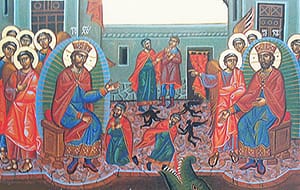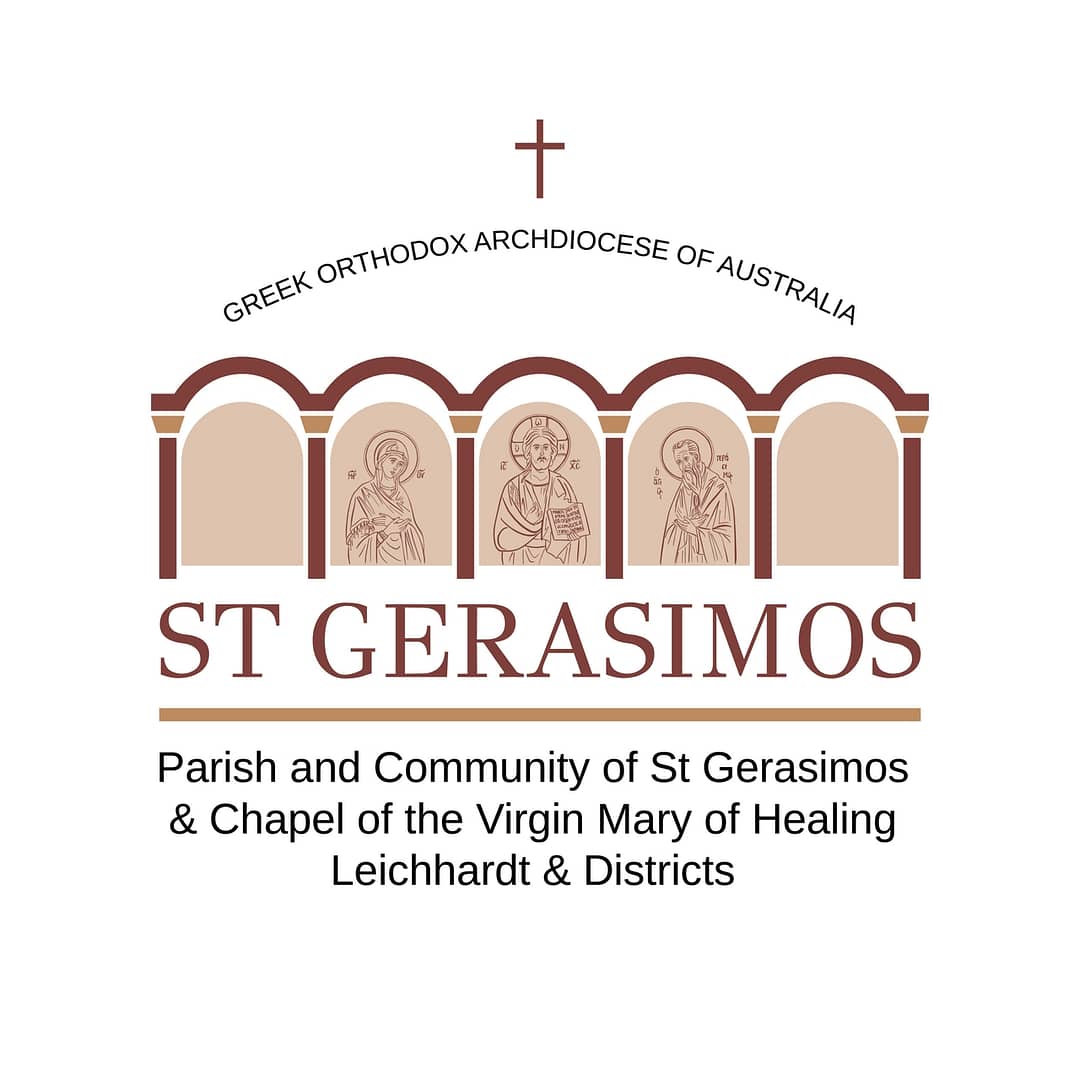
In today’s Gospel reading, dear brothers and sisters in Christ, our Lord gives us a parable that should strike every one of us to the heart. A king forgives his servant an unpayable debt, an amount so huge it could never be repaid in ten lifetimes. But that very same servant, walking out of the king’s presence, seizes a fellow servant by the throat for a small debt and refuses to forgive. When the king hears of it, he is outraged. The servant who received mercy but showed no mercy is condemned.
Jesus ends with the warning: “So My heavenly Father also will do to you if each of you, from his heart, does not forgive his brother his trespasses.”
The parable begins with a servant who owes the king ten thousand talents. In today’s terms, it would be billions of dollars. In other words, unpayable. The Lord is teaching us that our sins, our selfishness, our betrayals of God’s love, amount to a debt we cannot repay by our own effort.
And yet, through Christ, God forgives us completely. He wipes the slate clean, not because we deserve it, but because He is merciful. As St. Isaac the Syrian says: “Just as a grain of sand cannot outweigh a great quantity of gold, so God’s mercy cannot be overcome by the gravity of our sins.”
But what happens next? The servant who has been forgiven so much cannot forgive the little owed to him. Compared to what God has forgiven us, the offenses of others are small. Yes, people hurt us, sometimes deeply. But the Cross reminds us of Christ’s sacrifice and how much we’ve been forgiven.
St. John Chrysostom puts it plainly: “Nothing makes us so like God as our readiness to forgive.”
Let us be honest: forgiveness is not easy. We hold on to wounds, we replay insults, we feel justified in our anger. Sometimes we even think, “If I forgive, they will get away with it.”
But forgiveness does not mean excusing evil. This does not imply that one should say, “It didn’t matter.” Forgiveness means choosing to release the burden, to hand over justice to God, and to free our own hearts from chains. When we refuse to forgive, the person imprisoned is not the other, but ourselves.
Think about how forgiveness heals relationships and communities. Families torn by grudges can be restored when one person takes the step to forgive. Friendships shattered can be rebuilt. Even within the parish, forgiveness is the oil that keeps us from breaking apart.
The Lord places forgiveness at the very center of our prayer life. Every time we say the Our Father we pray, “Forgive us our trespasses, as we forgive those who trespass against us.” This line in the Lord’s Prayer is unique because it includes a condition: if we desire forgiveness, we must also forgive others.
How do we begin?
- Pray for the one who hurt you, saying, “Lord, have mercy on them and on me.” Prayer softens the heart.
- Remember your own sins and how God has been patient with you. This makes it harder to stay angry.
- Take small steps. Forgiveness may not come instantly, but start by refusing to dwell on revenge and by asking God to change your heart.
- Seek the sacrament of confession. There, Christ Himself heals and strengthens us to forgive as He forgave.
At the heart of this parable stands the Cross. On the Cross, Christ bore the unpayable debt of our sins. He paid what we could never repay. He forgave even His executioners, saying, “Father, forgive them, for they know not what they do.”
The question for us is this: will we who have been forgiven so much by God refuse forgiveness to our brother or sister? Or will we become icons of Christ, showing mercy, so that our hearts may be free and our lives may shine with His love?
Let us hear again the words of St. Paul: “Be kind to one another, tenderhearted, forgiving one another, as God in Christ forgave you.” (Ephesians 4:32)
May the Lord grant us the courage to forgive from the heart, and in doing so, may we find the peace and joy of the Kingdom of Heaven. Amen.
